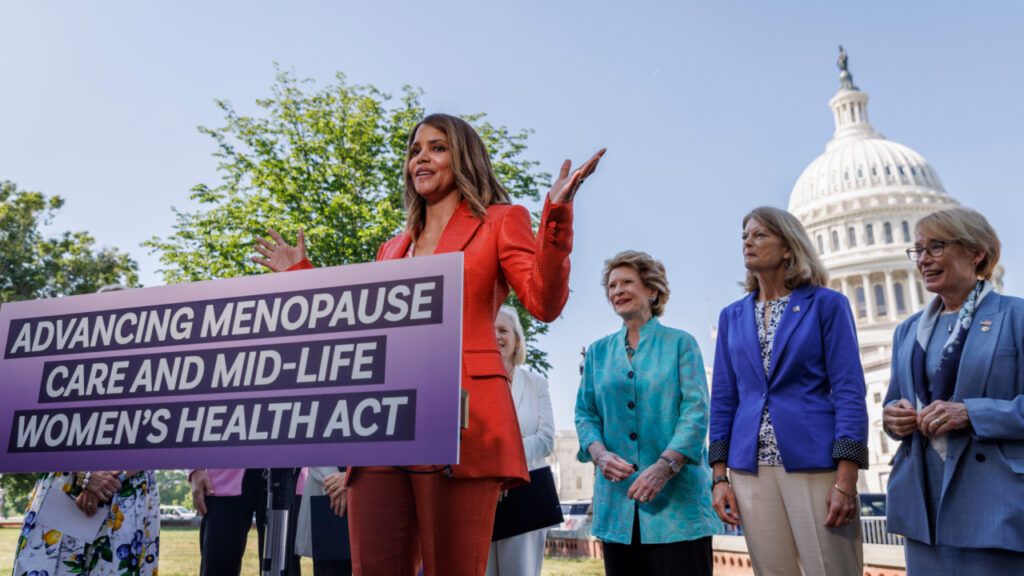The U.S. Just Cut $500 Million From mRNA Research and Women of Color Could Pay the Price
If you’ve followed the headlines around vaccines, you’ve probably heard of mRNA technology. It helped bring the world its first COVID-19 vaccines at record speed and saved millions of lives. But this month, the U.S. government canceled almost $500 million in mRNA research contracts. A decision that could halt progress on one of the most promising areas of cancer treatment: breast cancer vaccines.
Health and Human Services Secretary Robert F. Kennedy Jr., a longtime vaccine critic, announced the termination of 22 federal contracts through the Biomedical Advanced Research and Development Authority (BARDA). He argued that mRNA vaccines “fail to protect effectively against upper respiratory infections.” That’s a claim widely disputed by medical experts and contradicted by large-scale studies that show mRNA vaccines are safe and effective.
Why scientists consider mRNA a breakthrough in medicine
Unlike older vaccines, which use weakened or inactivated pathogens, mRNA vaccines deliver genetic instructions that allow the body’s own cells to produce a viral protein and trigger an immune response. That adaptability makes the platform ideal for treating emerging diseases and, increasingly, for targeting cancers.
According to Johns Hopkins, the speed and flexibility of mRNA development could make it possible to create patient-specific cancer vaccines that harness the immune system to fight tumors. In fact, over 120 clinical trials have already been registered with the federal government to test mRNA vaccines in cancers such as melanoma, pancreatic, colorectal, and breast cancer.
Sun Yat-Sen University researchers recently summarized why this is so significant for breast cancer. They argue that mRNA vaccines could “convert cold breast cancer into hot.” They do so by boosting the immune system’s ability to recognize and destroy tumor cells. In breast cancer treatment, that could mean expanding the number of patients who actually respond to immunotherapy. Especially for aggressive subtypes like triple-negative breast cancer.
Cutting mRNA contracts could stall breast cancer research
The canceled contracts were focused on infectious diseases, not cancer. Still, researchers fear the ripple effects. Infrastructure for mRNA development — from lipid nanoparticles to quality control systems — is shared across infectious-disease and oncology projects. Pulling funding could slow the production pipelines that cancer trials depend on.
Dr. Herbert Kim Lyerly, an immunologist at Duke University, told The 19th that even if his own work on RNA cancer vaccines was not directly affected, the broader funding freeze risks deterring innovation. “To take away any of the tools to potentially have an impact is likely to limit progress,” he said.
OncoDaily reported that the halt could raise production costs for cancer vaccine trials by as much as 20–40 percent. And delay treatments by several weeks, a serious setback for patients with aggressive cancers.
Women of color could face the harshest consequences
The stakes are especially high for women of color. The National Cancer Institute found that breast cancer incidence has risen over the past two decades, particularly among young women and Asian American and Pacific Islander women. Black women diagnosed with breast cancer remain substantially more likely to die compared to their white counterparts.
If the government slows down mRNA vaccines, so is the potential to narrow those racial health disparities. As The 19th pointed out, women already face systemic under-recognition of cardiac disease, inequities in clinical research, and gaps in cancer interventions. Pulling back on mRNA threatens to widen those divides.
Experts say misinformation is driving dangerous decisions
The decision reflects political ideology more than scientific consensus. According to Johns Hopkins, mRNA vaccines have repeatedly proven safe, effective, and adaptable. Former Surgeon General Jerome Adams called the funding cut “dangerous,” warning that it could undermine work not just on cancer but also on diseases like HIV, RSV, and autoimmune conditions.
Canadian virologist Angela Rasmussen told CBC that Kennedy’s claim about vaccines prolonging pandemics is inaccurate. “Viruses mutate when they replicate, and they replicate when they spread through a population,” she said. “The best way to prevent a virus from spreading is to make sure people are protected by vaccination.”
A chilling effect on innovation
The impact isn’t limited to science labs. Researchers worry that Kennedy’s rhetoric, amplified by misinformation about COVID-19, could erode public trust in all vaccines, including cancer treatments. “It reduces the options you have to explore strategies to reduce the burden of disease, to prevent disease, to improve the quality of life,” Lyerly told The 19th.
Dr. Alison Stopeck of Stony Brook Cancer Center told the outlet that while she expects foundations and donors to step in, the absence of stable federal support still creates uncertainty. “People are committed to mRNA because it has been shown to be safe and effective. People will still continue to do that research,” she said. But as OncoDaily notes, without federal investment, the U.S. risks ceding leadership in cancer innovation to countries like China and those in the EU.
The bigger picture
Beyond politics, the issue comes down to access and equity. If the U.S. government sidelines mRNA development, patients in the country, especially women of color who already face barriers in care, could be left behind.
As Dr. Lisa Shulman, a neurologist with the American Brain Foundation, has explained in other contexts, loss and disruption have lasting neurological and physical effects. Pulling research that could save lives compounds that cycle.
At its core, the mRNA funding cut isn’t just a political maneuver. It’s a choice that could determine who gets access to the next wave of lifesaving treatments, and who doesn’t.




